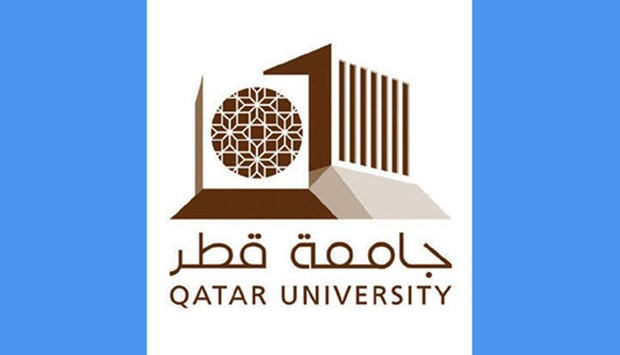Qatar University (QU) will organise the Third Youth Research Forum 2020 titled “Identity and Cultural Tourism: Towards a Culture of Sustainable Legacy,” on March 11 and 12.
The event aims to create research material covering the knowledge and cultural concerns of young people. In addition, it aims to create a database on youth activities that have distinct research capabilities in the field of specialised and interdisciplinary studies, and to explore the research capabilities of young people in a specific field linked to FIFA World Cup Qatar 2022 events and associated cultural, sports, environmental and urban activities.
The forum also has an objective of highlighting the roles played by institutions, such as the National Museum of Qatar and Katara – The Cultural Village, in promoting the cultural identity in Qatar. In addition, one of its objectives is integrating knowledge among young people, preparing them to do their duties, and taking the initiative towards positive participation in maximising the benefits of the World Cup. It is also aiming to open channels of communication for research and knowledge between the university and community institutions, especially those that play a key role in the World Cup.
One of the main targets of the forum is to create and open channels of communication between young researchers and community institutions organising the World Cup. Moreover, it aims to promote a culture of scientific research and link it to important historical events, and promote cultural tourism and build a knowledge society. One of the most important targets is that it is aiming to introduce Qatari heritage in all its forms in a scientific and accurate manner according to the specifications of the Unesco Authority, such as with names, food, cities, mosques and museums.
Prof Mariam al-Maadeed, vice president (Research and Graduate Studies) at QU, said the forum is a part of the university's strategy at developing scientific research among young people, particularly, the aspects related to identity studies, heritage and cultural communication.
She added that the forum plans to achieve several cognitive, cultural, and community purposes where the forum represents an opportunity for young people to serve the needs of society in the next crucial phases of development.
Participation in the forum is open for postgraduate and undergraduate student research. The student can submit his or her research alone or as a group of students (no more than six) participating in one research.
Students from multiple disciplines can participate in a single research team. The student or group of students can apply to participate in the forum even if it is a completed research or has participated in another scientific event provided it fits the topics of the forum.
The forum's organising committee has selected several theme and topics, which young people can research and apply to participate in. The topics are: (1) World Cup facilities and the sustainability of Qatar's heritage in architecture, arts and culture; (2) The role of museums in promoting cultural identity; (3) Economy and culture tourism; (4) Heritage cities and their role in culture tourism; (5) Symbols and components of identity; (6) Collecting and documenting parts of the culture heritage; (7) Challenges of identity and globalisation; (8) Medicine, pharmacology and community health.
The forum also has an objective of highlighting the roles played by institutions, such as the National Museum of Qatar and Katara – The Cultural Village, in promoting the cultural identity in Qatar. In addition, one of its objectives is integrating knowledge among young people, preparing them to do their duties, and taking the initiative towards positive participation in maximising the benefits of the World Cup. It is also aiming to open channels of communication for research and knowledge between the university and community institutions, especially those that play a key role in the World Cup.
One of the main targets of the forum is to create and open channels of communication between young researchers and community institutions organising the World Cup. Moreover, it aims to promote a culture of scientific research and link it to important historical events, and promote cultural tourism and build a knowledge society. One of the most important targets is that it is aiming to introduce Qatari heritage in all its forms in a scientific and accurate manner according to the specifications of the Unesco Authority, such as with names, food, cities, mosques and museums.
Prof Mariam al-Maadeed, vice president (Research and Graduate Studies) at QU, said the forum is a part of the university's strategy at developing scientific research among young people, particularly, the aspects related to identity studies, heritage and cultural communication.
She added that the forum plans to achieve several cognitive, cultural, and community purposes where the forum represents an opportunity for young people to serve the needs of society in the next crucial phases of development.
Participation in the forum is open for postgraduate and undergraduate student research. The student can submit his or her research alone or as a group of students (no more than six) participating in one research.
Students from multiple disciplines can participate in a single research team. The student or group of students can apply to participate in the forum even if it is a completed research or has participated in another scientific event provided it fits the topics of the forum.
The forum's organising committee has selected several theme and topics, which young people can research and apply to participate in. The topics are: (1) World Cup facilities and the sustainability of Qatar's heritage in architecture, arts and culture; (2) The role of museums in promoting cultural identity; (3) Economy and culture tourism; (4) Heritage cities and their role in culture tourism; (5) Symbols and components of identity; (6) Collecting and documenting parts of the culture heritage; (7) Challenges of identity and globalisation; (8) Medicine, pharmacology and community health.

